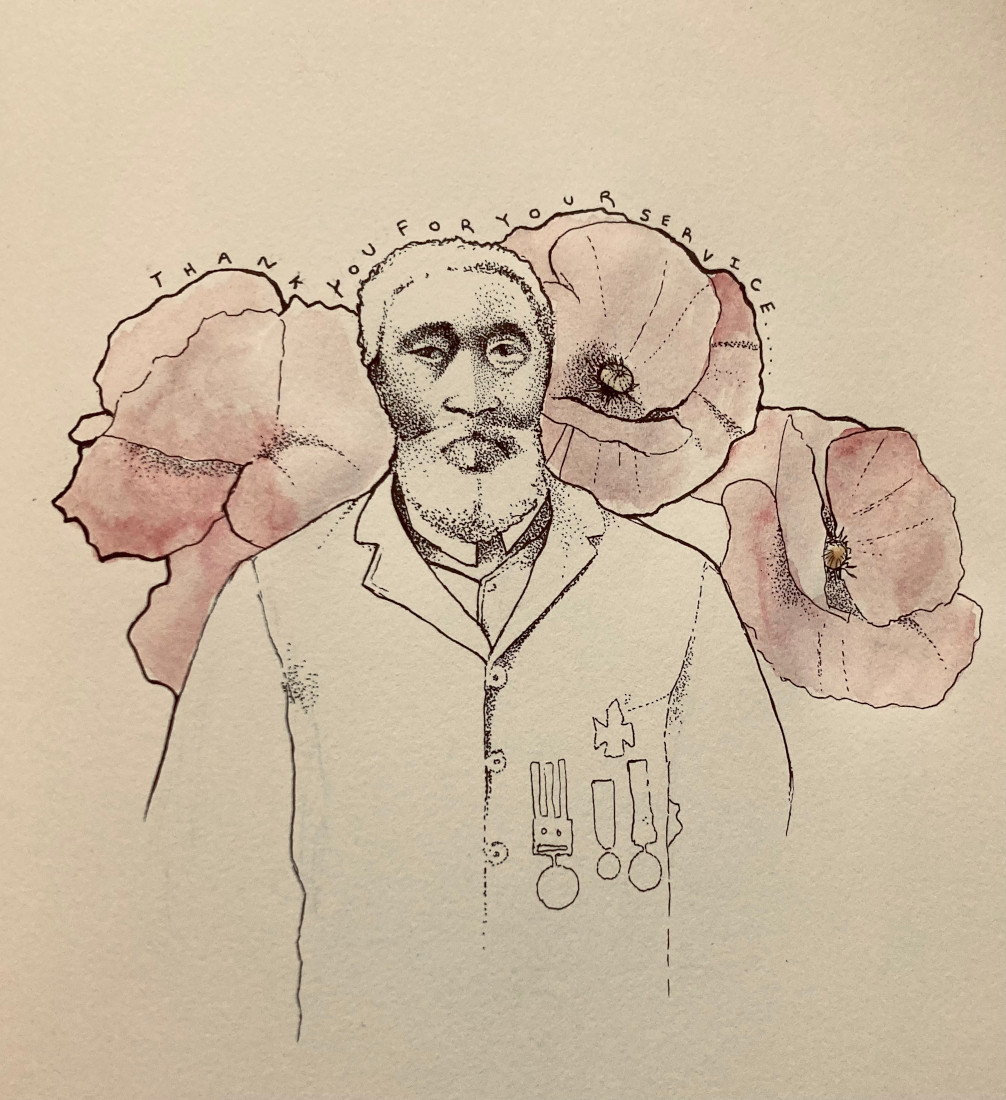Black contribution in war efforts
Reading in colour
Illustration by Gabrielle Funk
Gus Este was a Black Canadian who served as a medical assistant during the Korean War in the 1950s. After his discharge, he decided to rejoin the service three years later and held the rank of major. In a series of interviews titled Heroes Remember, available on the Veterans Affairs Canada website, Este stressed the importance of recognizing the contribution of Black people in war efforts.
“There’s very little knowledge in Canada about Blacks in the Canadian military, and I think that’s gotta be exposed rather than hidden, because it started early, a long time before me,” Este explained in one of the interviews. “You know, at the beginning of Canada’s coming to be a nation, even before that, Blacks were involved in significant roles in the military, and I think that’s unknown.”
Black Canadians have been participating in Canadian war efforts since the country’s formation, but much of this legacy remains undiscussed. In 1916, the first and only all-Black military unit in Canadian history was formed: the No. 2 Construction Battalion.
At the start of the First World War, the Canadian forces had a restricted enlistment policy that did not welcome most men of Colour. The No. 2 Battalion, a segregated non-combatant unit, arose out of protests against these restrictive policies and appeals to military officials. The group arrived in Europe to respond to the needs of a depleted force, constructing trenches, roads and bridges and defusing landmines, which allowed troops to keep moving forward.
Though the army had initially rejected most minority applicants, by this time, Canada had instituted a conscription policy that included men of all races.
The relationship between Black Canadians and the Armed Forces remained fraught. Black soldiers, including those from the No. 2 Battalion, were not recognized with the same military honours as white Canadians, and their legacy remains largely under-recognized today.
Certain Black Canadians have been acknowledged and honoured for their contributions to Canadian military efforts, such as Able-Seaman William Neilson Edward Hall, more commonly known as William Hall, who enlisted in the British Royal Navy in 1852, serving in the Crimean War and the First Indian War of Independence.
Hall became the first Black and first Canadian Naval recipient of the Victoria Cross, a medal awarded for “most conspicuous bravery or some daring or pre-eminent act of valour, self-sacrifice or extreme devotion to duty in the presence of the enemy.” The Canadian Military Families magazine says the Victoria Cross is the “highest award of military valour” in Canada.
Over the years, Black Canadians have contributed immensely to various war efforts. As Este pointed out, there is little knowledge of this fact. This is why on Remembrance Day (even though it is a day later today), Canadians should remember the Black Canadians who served in the military.
To read more:
About William Hall: https://www.veterans.gc.ca/eng/remembrance/medals-decorations/canadian-victoria-cross-recipients/william-hall
About Black contributions to the Canadian Armed Forces: https://www.cmfmag.ca/history/celebrating-diversity-and-the-contribution-of-black-canadian-in-the-caf/
About the all-Black battalion (a resource for children): https://www.cbc.ca/kidscbc2/the-feed/we-stand-on-guard-for-thee
Valerie Chelangat is a Kenyan-Canadian columnist and a bookseller for marginalized voices. She is a master of fine arts in creative writing student.
Published in Volume 76, Number 09 of The Uniter (November 12, 2021)






